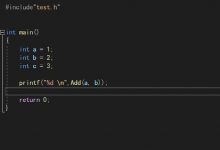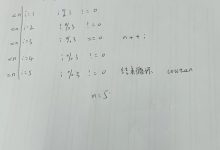C语言中的字符串函数有如下这些
- 获取字符串长度strlen
- strcpy
- strncpy
- strstr
- strerror
长度不受限制的字符串函数
strcat
老规矩,我们还是看看文档是怎样说的,如下
strcat文档
char * strcat ( char * destination, const char * source );
Concatenate strings
连接字符串
Appends a copy of the source string to the destination string. The terminating null character in destination is overwritten by the first character of source, and a null-character is included at the end of the new string formed by the concatenation of both in destination.
追加一个源字符串的拷贝到目的字符串中。在目的字符串中的\’\\0\’会被源字符串的第一个字符重写,然后\’\\0\’会在新字符串的最后面。
destination and source shall not overlap.
目的字符串和源字符串不应该重叠
可以知道
- 源字符串必须以
\'\\0\'
结束。
- 虽然文档没说目标空间必须足够大,但是想一想还是可以知道的,即目标空间必须有足够大,能容纳下源字符串的内容,不然就追加不上了
实现
断言指针不为空是个好习惯~
char* my_strcat(char* dest, const char* src){assert(dest != NULL);assert(src);char* rest = dest;// 1. 找到目的字符串的\'\\0\'while (*dest != \'\\0\'){dest++;}// 2. 追加,就是字符串拷贝了,和之前的strcpy的实现一样while (*dest++ = *src++){;}return rest;}int main(){//char arr1[] = \"hello\";//char arr2[] = \"world\";//// 把arr2追加到arr1上//strcat(arr1, arr2);//printf(\"%s\\n\", arr1);// 会报错,空间不够,上面的写法是错误的// 可以给arr1的大小固定一个大的空间,比如arr1[30]char arr1[30] = \"hello\\0xxxxxxxxx\";char arr2[] = \"world\";56c// 把arr2追加到arr1上//strcat(arr1, arr2);my_strcat(arr1, arr2);printf(\"%s\\n\", arr1);return 0;}
总的来说,实现的思路就是,把源字符串追加到目的字符串的后面,从而实现字符串连接。问题就在于如何找到目的字符串的尾部,很简单,就直接找
\'\\0\'
,找到
\'\\0\'
就进行追加,追加就是直接复制源字符到目的空间,以此循环,复制直到遇到
\'\\0\'
就结束,这样就完成了字符串的连接了。
最后,感谢屏幕前的
靓仔
花宝贵的时间阅读我这篇博客~
本人水平有限,如有错误以及不足之处,欢迎
靓仔
指出。
 爱站程序员基地
爱站程序员基地


